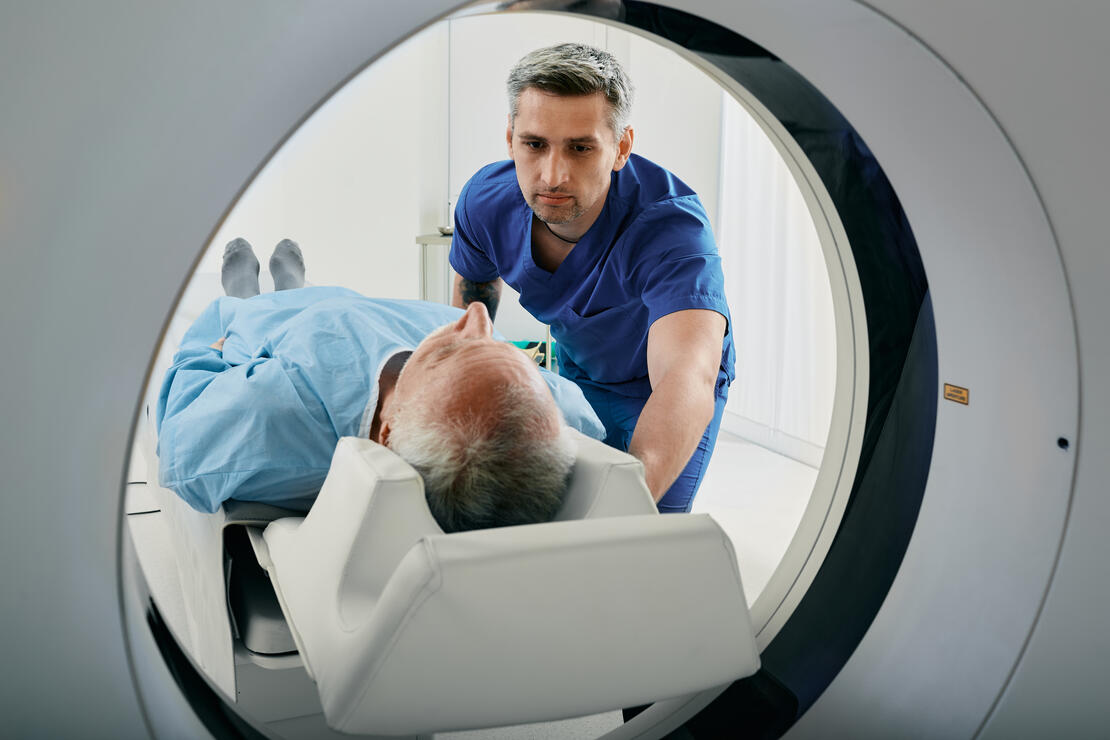LifeBridge Health’s Lung Screenings: Early Detection, Better Outcomes and Smoking Cessation Support

Quitting smoking is one of the most important steps you can take for your health, but it’s also one of the hardest. According to the Centers for Disease Control and Prevention (CDC), most adults who smoke want to quit, but fewer than one in 10 succeed each year. Many don’t have access to the tools, support or treatments they need to stop smoking successfully.
At LifeBridge Health, we’re working to change that. Under the leadership of Dr. Nicholas Karis, Division Chief of Thoracic Surgery, we’ve expanded our lung screening services, connecting patients with a team dedicated to education, early detection, treatment and ongoing support. Together, these services empower smokers and lung cancer patients to take meaningful steps toward a healthier, smoke-free future.
The Impact of Smoking on Health
Smoking doesn’t just increase your risk of lung cancer or respiratory diseases like chronic obstructive pulmonary disease (COPD)—it affects nearly every system in your body, often in ways you might not expect:
- Heart and Blood Vessels: Smoking raises your risk of heart disease, heart attacks and high blood pressure. It also contributes to hardened arteries (atherosclerosis), reducing blood flow and putting additional strain on your heart.
- Immune System: Smoking weakens your body’s defenses, making it harder to fight infections and increasing inflammation throughout the body.
- Digestive System: Harmful chemicals in cigarettes elevate your risk of esophageal and stomach cancers. Smoking is also a common cause of acid reflux and other digestive issues.
- Brain Health: Reduced oxygen flow to the brain increases your risk of stroke and contributes to cognitive decline over time.
These effects aren’t just long-term concerns—they can also limit your options if you’re diagnosed with lung cancer. Smoking impacts your body’s ability to tolerate surgery and other treatments, reducing the chances of successful outcomes when they’re needed most. “To have someone come into your office and then have to tell them, ‘I’m sorry, I can’t help you,’ is devastating,” says Dr. Karis.
The good news? Recovery begins almost immediately after you stop smoking. Within two to three months, circulation improves, and lung function increases. By the end of the first year, your risk of heart disease is cut in half. Our team is here to help you see—and achieve—these milestones and more.
Early Detection: Catching Lung Cancer Early
Lung cancer often develops silently, with symptoms only appearing in later stages. That’s why early detection is so critical. Our new lung cancer screening program uses low-dose computed tomography (low-dose CT) scans to detect cancer when it’s most treatable.
Low-dose CT scans use advanced X-ray and computer technology to create detailed images of your lungs. Compared to traditional CT scans, low-dose CT provides significantly less radiation exposure.
Who Should Get Screened?
You may qualify for a low-dose CT scan if you:
- Are between 50 and 80 years old.
- Smoked one pack per day for 30 years (or two packs daily for 15 years).
- Are a current smoker or quit within the past 15 years.
- Have a family history of lung cancer.
What to Expect During a Screening
Low-dose CT scans are noninvasive and take about 10 minutes to complete. Here’s what happens:
- Preparation: You may need to remove jewelry, glasses or clothing with metal components to avoid interference with the images. A hospital gown will be provided if necessary.
- Positioning: You’ll lie on a table that slides into the CT scanner, a large, doughnut-shaped machine. You may be asked to hold your breath briefly for clear imaging.
- The Scan: The scanner will rotate around you to capture cross-sectional images of your lungs.
After the scan, a radiologist will review the results and share them with your care team. If no issues are found, routine follow-up scans may be scheduled annually to monitor your lung health. If the scan detects something unusual, your team will recommend additional tests or connect you with a specialist for further evaluation.
Comprehensive Care, Tailored to You
LifeBridge Health’s Multidisciplinary Clinic streamlines the care, bringing together thoracic surgeons like Dr. Karis with specialists from radiation oncology, medical oncology and pulmonology—all in one appointment. Before your visit, our team collaborates during a tumor board review to create a personalized care plan tailored to your needs.
“It’s a group effort to create the best plan of action in the shortest amount of time,” says Amanda Nash, practice manager.
A dedicated care navigator ensures smooth access to all recommended services, which may include:
- Smoking Cessation Support: Counseling, treatments and resources to help you quit smoking for good.
- Pulmonary Rehabilitation: Programs to strengthen your lungs, improve breathing and enhance quality of life.
- Advanced Treatments: Options like immunotherapy, chemotherapy, radiation or surgery.
- Support Services: Assistance with transportation, financial aid and counseling to remove barriers to care.
We’re committed to providing compassionate, collaborative care to help you take the next step toward better lung health.
Ready to Take Action?
If you’re interested in lung cancer screening or smoking cessation, talk to your primary care provider to see if you qualify! Don’t have a provider? Use our directory to find one near you or call 410-469-4950 for assistance.
To inquire about a screening with Dr. Karis directly, call 410-601-5544.
Your health—and your future—matter. Take the first step today.